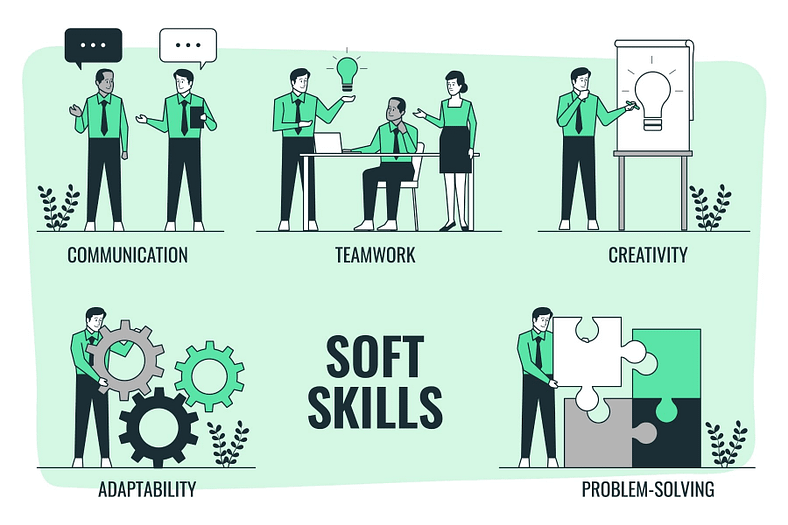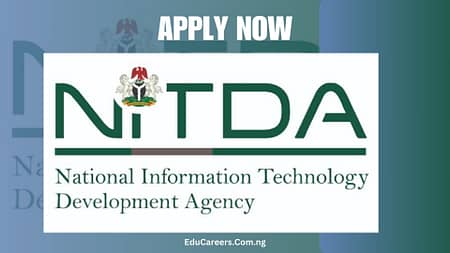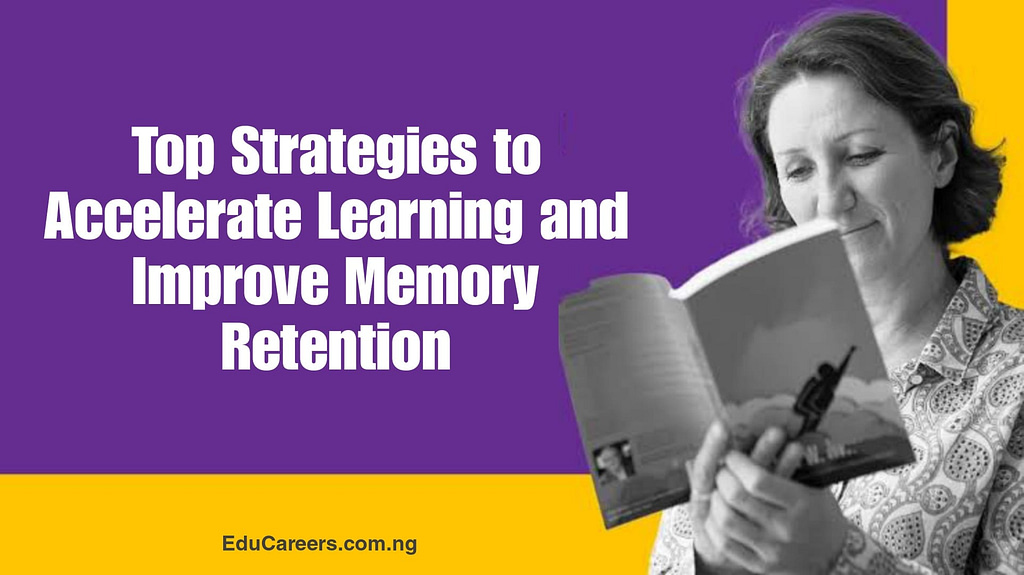In an increasingly dynamic and automated world, the value of soft skills is only growing. While technical know-how and hard skills are crucial, employers in 2025 are placing more emphasis on soft skills—those interpersonal abilities that determine how well you work with others, solve problems, and adapt to new situations. In this blog post, we’ll explore ten essential soft skills you need to succeed in 2025, complete with examples of how to apply them in real-world settings.
1. Emotional Intelligence (EQ)
Definition: Emotional Intelligence is the ability to recognize, understand, and manage your own emotions and those of others.
Why it’s important in 2025: As workplaces become more diverse and remote work continues to grow, emotional intelligence is critical. It helps in creating a positive work environment, improving communication, and resolving conflicts.
Example: Imagine you’re leading a project and one of your team members is visibly stressed. Recognizing their emotional state, you could pull them aside and ask how you can help reduce their workload or provide support. This emotional awareness can prevent burnout and increase productivity.
2. Adaptability
Definition: Adaptability is the ability to adjust to new conditions and thrive amidst change.
To Receive Latest Updates on: Scholarships, Internships, Recruitments and Job Opportunities Join our Telegram and WhatsApp Group Now!!
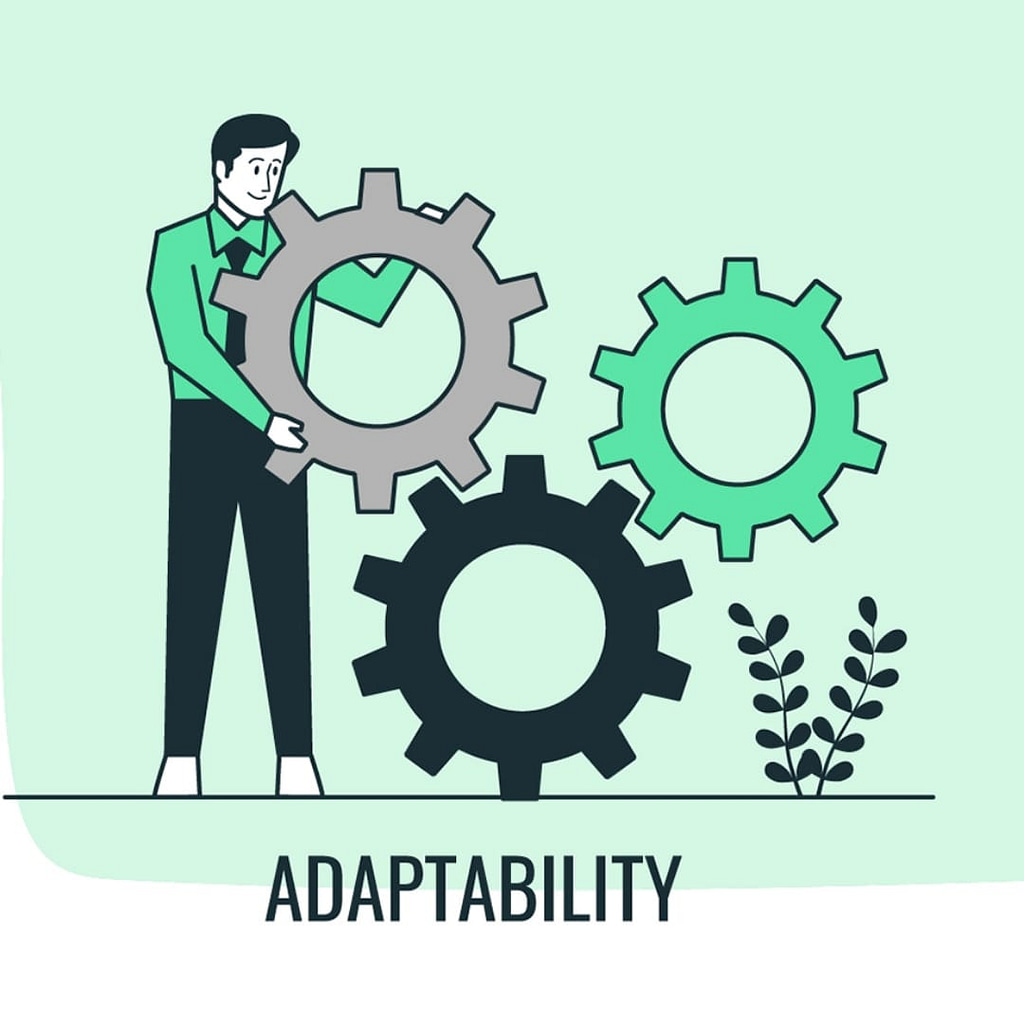
Why it’s important in 2025: With the rapid pace of technological advancement, including AI and automation, change is constant. Being adaptable ensures you can handle new tools, shifting job roles, and evolving industry trends.
Example: In 2025, your company may decide to integrate new AI-driven software to streamline workflow. An adaptable employee would take the initiative to learn the new system, embracing it as an opportunity to improve efficiency rather than seeing it as a disruption.
3. Critical Thinking
Definition: Critical thinking involves analyzing facts objectively, evaluating arguments, and making reasoned decisions.
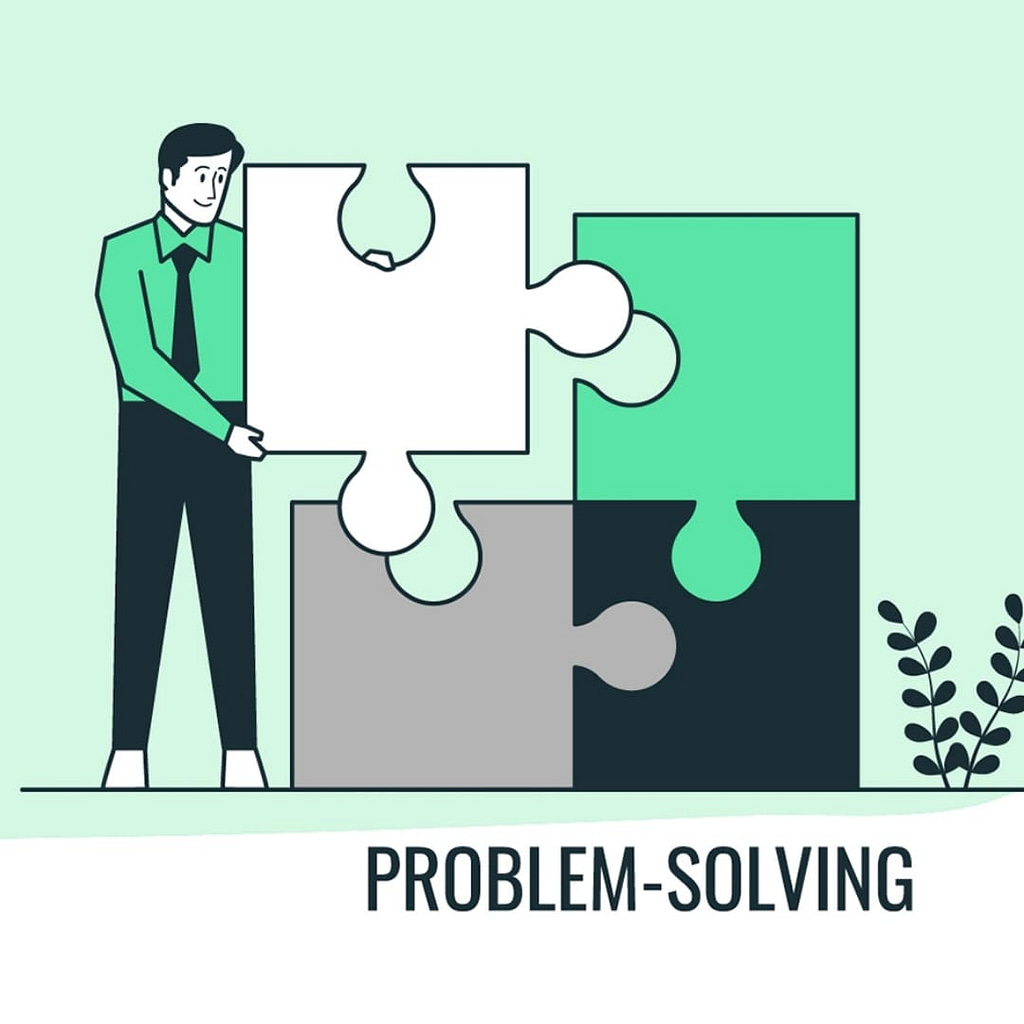
Why it’s important in 2025: With more data and information available than ever, employees who can sift through the noise and make informed decisions will be highly valued. Critical thinkers also solve complex problems creatively.
Example: Suppose you’re tasked with finding ways to cut costs in a department without sacrificing quality. A critical thinker would review spending patterns, assess which processes are redundant, and propose innovative solutions that optimize both budget and performance.
4. Collaboration
Definition: Collaboration is the ability to work effectively with others towards a common goal.

Why it’s important in 2025: As work environments become more decentralized, remote collaboration is essential. Teams spread across time zones and geographies need individuals who can work well together, regardless of distance.
Example: A project may require collaboration between marketing, product development, and sales teams. Strong collaborators will communicate clearly, share ideas openly, and ensure that everyone stays aligned on project goals, timelines, and expectations.
5. Communication Skills
Definition: Communication skills encompass the ability to convey information clearly and effectively in both written and verbal forms.

Why it’s important in 2025: In an increasingly digital workplace, where emails, video calls, and messaging platforms dominate, clear and concise communication is crucial for avoiding misunderstandings and ensuring efficiency.
Example: When giving feedback on a project via email, a good communicator would structure their message in a way that is constructive and easy to follow. They might start with positive points, then offer suggestions for improvement, and close with a clear action plan.
6. Time Management
Definition: Time management is the skill of organizing your time efficiently to maximize productivity.
Why it’s important in 2025: With remote work becoming more common, self-discipline and time management are critical. Employers look for individuals who can manage their workload independently without constant supervision.
Example: Working from home, you might have multiple tasks to juggle. Effective time management would mean prioritizing the most urgent tasks, using tools like calendars and to-do lists, and setting aside specific blocks of time for focused work without distractions.
7. Creativity
Definition: Creativity is the ability to think outside the box, generating new ideas and solutions.

Why it’s important in 2025: As automation takes over repetitive tasks, creativity will be a key differentiator for humans. Creative thinking allows employees to come up with novel solutions and innovations that machines can’t generate.
Example: A marketing team facing declining engagement rates could benefit from a creative thinker who proposes an unconventional campaign, perhaps using a new social media platform or format, to capture a fresh audience’s attention.
8. Leadership
Definition: Leadership is the ability to inspire and guide others, even without being in a formal management role.
Why it’s important in 2025: Leadership isn’t just about being the boss. In 2025, organizations value employees who can lead by example, take initiative, and motivate their peers.
Example: You might notice that team morale is low. Even if you’re not a manager, you can step up by organizing a team-building event, or simply checking in with your colleagues to see how they’re doing, showing empathy and support.
9. Negotiation Skills
Definition: Negotiation is the process of reaching mutually beneficial agreements through discussion and compromise.
Why it’s important in 2025: Whether it’s negotiating contracts, deadlines, or resources, the ability to find win-win solutions will be highly prized, especially as teams and businesses collaborate more globally.
Example: During contract negotiations with a vendor, you might need to advocate for your company’s budget constraints while still maintaining a positive relationship. A skilled negotiator would find a middle ground that satisfies both parties, such as extending the timeline for payment in exchange for a discounted rate.
10. Resilience
Definition: Resilience is the ability to recover quickly from setbacks and keep going in the face of challenges.
Why it’s important in 2025: With an ever-changing landscape, professionals will face disruptions, failures, and unexpected events. Resilience ensures that you can bounce back, learn from mistakes, and continue striving towards your goals.
Example: If a major project you’ve been working on for months falls through, a resilient person would take a step back, assess what went wrong, and use the experience to make improvements for the future instead of becoming discouraged.
How to Develop These Soft Skills
Now that you know the top soft skills for 2025, how can you develop them? Here are a few tips:
- Seek Feedback: Regularly ask your colleagues and supervisors for feedback to understand areas where you can improve.
- Practice Active Listening: Whether in meetings or casual conversations, practice truly listening and engaging with others to build communication and emotional intelligence.
- Take on Challenges: Volunteer for tasks or projects outside your comfort zone. This will push you to adapt, collaborate, and lead.
- Learn Continuously: Use online courses, workshops, and books to continually refine your skills, whether it’s learning time management techniques or enhancing your creativity.
Conclusion
As we move toward 2025, soft skills will be the driving force behind successful careers. While technology is important, the ability to think critically, communicate effectively, and lead with empathy is what will set you apart. Focus on building these essential soft skills, and you’ll be well-prepared to thrive in the future of work.
By developing and honing these soft skills, not only will you remain competitive in the workforce, but you’ll also create stronger relationships and a more fulfilling professional life.
